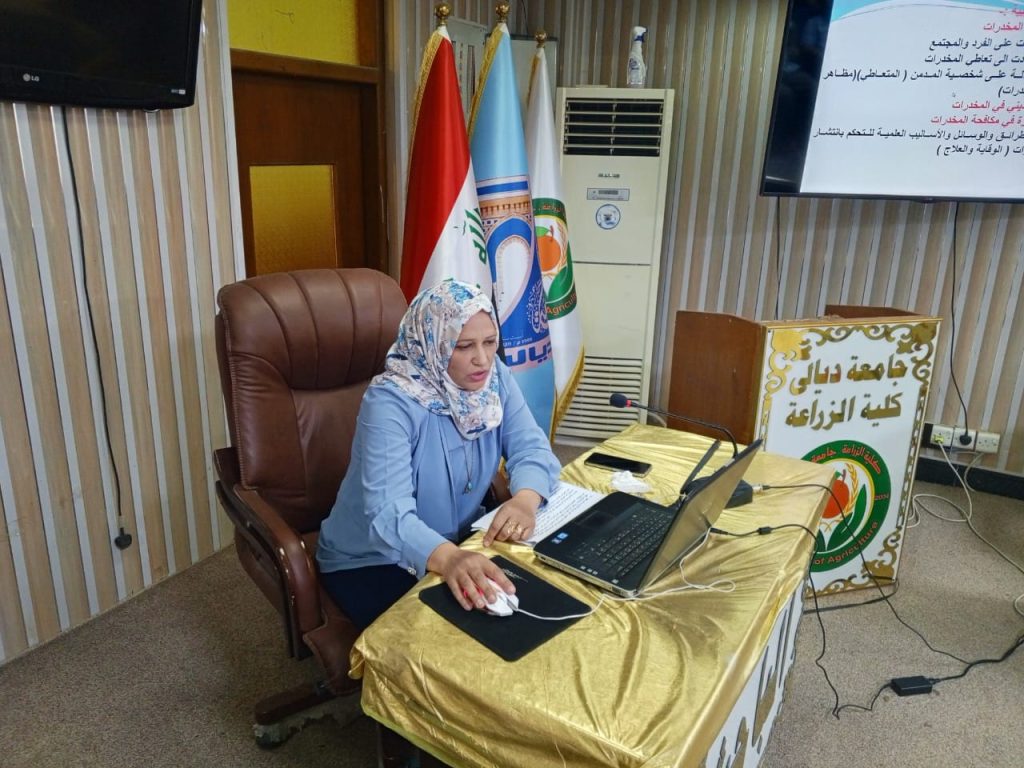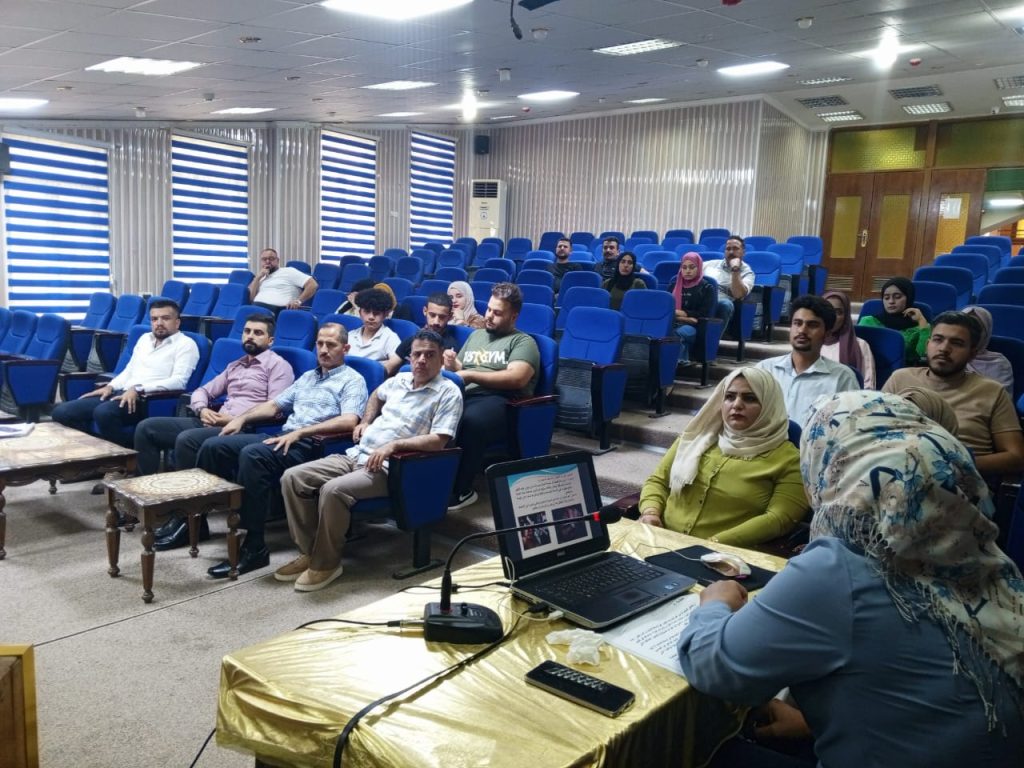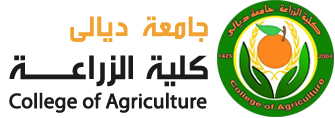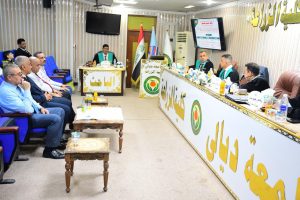The Psychological Counseling and Educational Guidance Unit at the Faculty of Agriculture is organizing a training course on the role of management in combating drugs and the harms of drug abuse.
The Psychological Counseling and Educational Guidance Unit at the Faculty of Agriculture is organizing a training course on the role of management in combating drugs and the harms of drug abuse.
The Psychological Counseling and Educational Guidance Unit at the Faculty of Agriculture organized a training course entitled “The Role of Administration in Combating Drug Abuse and Its Harmful Effects” at Diyala University.
The course, presented by Assistant Lecturer Hala Abdul Haseeb Mohammed Saleh, covered the following topics:
- Introducing the concept of drugs and their effects on individuals and society, as well as the factors that contribute to drug abuse and the indicative signs of addiction.
- Exploring the religious legislation regarding drugs.
- Highlighting the role of administration in combating drug abuse.
The course encompassed several key points, including:
- The first axis discusses the concept and definition of drugs.
Drugs are substances, either natural or synthetic, that enter the human body and have an impact, altering one’s sensations, behaviors, and certain functions. The repeated use of these substances results in serious consequences for physical and mental health, and they have detrimental effects on the environment and society.
Furthermore, drugs cause harm to families by causing familial problems, demolishing the foundation of families, leading to deviations in children’s behavior, impacting the family’s reputation, undermining religious values, and eroding principles and values.
On an individual level, drugs result in isolation, introversion, rejection of society, and a disdain for it. They have physical and mental health issues and can cause damage to the nervous system and brain cells, resulting in muscle tremors, lack of balance while walking, loss of self-control, excessive anxiety, cognitive distortions, severe depression, and more.
Regarding their impact on society, drugs have the potential to spread addiction to others, as well as infectious diseases among drug users and beyond. They exploit young people in need of drugs, directing them towards drug promotion and trafficking. This contributes to the increased spread of corruption in society.
The course also addressed the manifestations of drug use, such as social withdrawal, isolation from others, neglecting or disregarding personal appearance, chronic laziness, constant yawning, paleness, trembling in the limbs, loss of appetite, general weakness, continuous weight loss, runny nose, dilated pupils with excessive tearing, increased thirst, excessive salivation, irregular attendance in studies, staying up late, and absenteeism from school or work.
- The second axis delved into the religious legislation regarding drugs, with a quote from the Prophet Muhammad (peace be upon him) stating, “There should be no harm or reciprocal harm.” Islamic law prohibits drugs, equating them with alcohol, as they intoxicate the mind. Allah Almighty says, “O you who have believed, indeed, intoxicants, gambling, [sacrificing on] stone alters [to other than Allah], and divining arrows are but defilement from the work of Satan, so avoid it that you may be successful” (Quran 5:90).
- The third axis explored the role of administration in combating drug abuse. The Iraqi Law on Psychotropic Substances No. 50 of 2017 has significantly enhanced the role of administrative authorities in combating drugs. The law emphasizes the supervisory, preventive, and therapeutic roles of administration. It establishes the National Higher Committee for Drugs and Psychotropic Substances and the General Directorate for Drugs and Psychotropic Substances, while emphasizing the importance of coordination among all relevant ministries to combat drug abuse. The law also addresses measures to treat and rehabilitate drug addicts.
The course concluded
by recommending collaborative efforts in combating drugs, with shared responsibility among all members of society, in addition to regulatory bodies within the Ministry of Health, Ministry of Planning, the Central Organization for Standardization and Quality Control, and the regulatory bodies within the Ministry of Interior at the border crossings. Continuous awareness campaigns, particularly targeting teenagers and youth, and employing educational methods based on open dialogue with children, as well as timely evaluation and intervention to address behavioral deviations, were also emphasized. Finally, stricter penalties for drug users and traffickers were highlighted.





